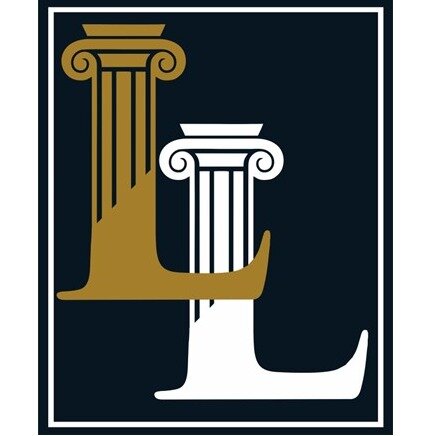Best Health Care Lawyers in Philippines
Share your needs with us, get contacted by law firms.
Free. Takes 2 min.
Or refine your search by selecting a city:
List of the best lawyers in Philippines
About Health Care Law in Philippines
The health care system in the Philippines is a mix of public and private programs. The public sector is led by government healthcare institutions and funded by taxation, while private health facilities provide the majority of specialized services. A significant legislation affecting health care is the Universal Health Care (UHC) Act, which aims to ensure equitable access to quality and affordable health care services for all Filipinos. The law mandates that all Filipinos are automatically members of PhilHealth, the national health insurance program, which plays a central role in financing health care.
Why You May Need a Lawyer
Legal assistance may be required in various situations related to health care in the Philippines:
- Medical Malpractice: Patients or families may need to pursue claims for alleged errors by health care professionals.
- Health Insurance Disputes: Issues with coverage, claims, or benefits under PhilHealth or private insurance contracts may necessitate legal intervention.
- Compliance and Licensing: Health care providers must navigate complex regulations and might require legal guidance to ensure compliance with local laws.
- Patient Rights: Understanding and asserting patient rights under the UHC Act and other relevant laws can often require legal expertise.
- Hospital Management and Operations: Legal advice may be needed for the structuring and operation of health care facilities, ensuring that all regulations and accreditation requirements are satisfied.
Local Laws Overview
The Philippines' health care legal framework involves several key pieces of legislation:
- Universal Health Care Act: Establishes comprehensive health care reforms to provide all Filipinos with access to quality health services without financial hardship.
- R.A. No. 9173 (The Philippine Nursing Act of 2002): Governs the practice of nursing in the country.
- R.A. No. 2382 (The Medical Act of 1959): Regulates the medical profession and the practice of medicine in the Philippines.
- R.A. No. 8504 (Philippine AIDS Prevention and Control Act of 1998): Provides for the prevention and control of HIV/AIDS in the Philippines.
- Data Privacy Act of 2012: Protects the privacy of individuals while ensuring free flow of information to promote innovation and growth, particularly relevant in handling patient data.
Frequently Asked Questions
What is the Universal Health Care Act?
The Universal Health Care (UHC) Act is legislation aimed at providing all Filipino citizens with access to a comprehensive set of quality health care services without causing financial hardship.
Who is covered under the UHC Law?
All Filipinos are automatically enrolled under the National Health Insurance Program managed by PhilHealth, ensuring access to a comprehensive range of health services.
What are my rights as a patient?
Patients have the right to informed consent, privacy and confidentiality, the right to health information, and freedom from abuse and neglect, among others.
How do I file a complaint against a health care provider?
Complaints can be filed with the Philippine Health Insurance Corporation (PhilHealth), the Professional Regulation Commission (PRC), or the Department of Health, depending on the nature of the complaint.
What should I do if I experience a medical malpractice issue?
Consult a lawyer specializing in health care law to evaluate your case and explore the possibility of filing a malpractice claim.
How does PhilHealth coverage work?
PhilHealth provides financial coverage for a range of health services, from inpatient care to outpatient services. The benefits and coverage levels may vary based on the specific case and type of membership.
What should private health facilities comply with regarding health care laws?
Private health facilities must comply with various health standards, secure appropriate licenses and permits, and adhere to labor and data privacy laws.
Are there any legal protections for health care professionals?
Yes, healthcare professionals are protected by laws governing their practice, ensuring due process in cases of allegations. They must comply with professional standards and ethical guidelines.
How do I ensure compliance with health care regulations?
It is essential for health care providers to have a compliance officer or seek legal counsel familiar with local regulations to ensure they meet all applicable legal standards.
Can I opt-out of the National Health Insurance Program?
No, under the Universal Health Care law, participation in the National Health Insurance Program is mandatory for all Filipinos.
Additional Resources
- Philippine Department of Health (DOH): Provides information on health policies and services.
- PhilHealth: Offers details on health insurance coverage and benefits.
- Professional Regulation Commission (PRC): Regulates and supervises the practice of professionals in the Philippines.
- Integrated Bar of the Philippines: A national organization that can connect you with legal professionals specializing in healthcare law.
- Health Services Regulatory Board: Manages the accreditation and regulation of healthcare facilities.
Next Steps
If you need legal assistance in health care matters, consider taking the following steps:
- Identify the Issue: Clearly define the legal issue or question you face.
- Gather Documentation: Collect all relevant documents such as medical records, contracts, correspondence, and any other evidence related to your case.
- Consult a Legal Professional: Contact a lawyer specializing in health care law. Utilize resources from the Integrated Bar of the Philippines or local law directories to find a specialist.
- Participate Actively: Work closely with your lawyer, provide them with comprehensive information, and be involved in developing a legal strategy.
- Stay Informed: Educate yourself on relevant laws and keep abreast of legislative changes that may affect your situation.
Legal matters in health care can be complex, but with accurate information and the right professional guidance, you can navigate these challenges successfully.
Lawzana helps you find the best lawyers and law firms in Philippines through a curated and pre-screened list of qualified legal professionals. Our platform offers rankings and detailed profiles of attorneys and law firms, allowing you to compare based on practice areas, including Health Care, experience, and client feedback.
Each profile includes a description of the firm's areas of practice, client reviews, team members and partners, year of establishment, spoken languages, office locations, contact information, social media presence, and any published articles or resources. Most firms on our platform speak English and are experienced in both local and international legal matters.
Get a quote from top-rated law firms in Philippines — quickly, securely, and without unnecessary hassle.
Disclaimer:
The information provided on this page is for general informational purposes only and does not constitute legal advice. While we strive to ensure the accuracy and relevance of the content, legal information may change over time, and interpretations of the law can vary. You should always consult with a qualified legal professional for advice specific to your situation.
We disclaim all liability for actions taken or not taken based on the content of this page. If you believe any information is incorrect or outdated, please contact us, and we will review and update it where appropriate.
Browse health care law firms by city in Philippines
Refine your search by selecting a city.
















